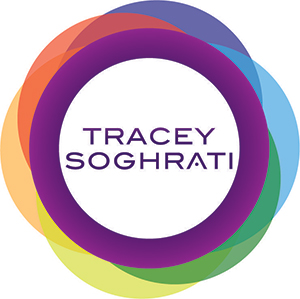What is Psychotherapy?
Therapy refers to the treatment of psychological distress through a variety of evidence-based techniques. Treatment includes assessment (e.g.: your symptoms and goals), and a collaboratively designed treatment plan that supports your healing. A key ingredient to successful psychotherapy is a trusting relationship between the client and therapist.
Tracey’s Approach:
It’s important for you to understand and be in alignment with a therapist’s approach to treatment. The approach shapes how a problem is conceptualized and the interventions used. I take a Humanistic approach to therapy. A “humanistic” therapist believes that all people are good and motivated to explore their unique potential. The whole person (beyond problems) is privileged, and clients are given the space and safety to explore their potential.
I also incorporate a Systemic view in my assessment process. A “systemic” perspective highlights the impact of close relationships, environment, behaviour and life choices on presenting issues. Further, a systemic perspective incorporates the effects of context (culture, social location, trauma, oppression) on individual and relational experiences.
Next, my treatment with clients is collaborative. This means that we work as a team in creating a plan of action. The therapy that we do together is Integrative, meaning that I will use interventions from the modalities I have studied most. They are listed below.
Emotionally Focused Therapy: EFT is an attachment-based scientific approach that prioritizes reshaping internal experiences and patterns of engagement with others. It is an experiential therapy which supports clients in creating new emotional experiences during the sessions. EFT’s foundation is non-pathologizing, humanistic and systemic. I have completed the EFT Externship (foundational training), EFT Core Skills, Emotionally Focused Individual Therapy (EFIT), and Transforming Trauma with EFIT. For more information and related research: https://iceeft.com/what-is-eft/
Acceptance and Commitment Therapy: ACT is an action-oriented therapy that supports clients in developing psychological flexibility through six core processes: acceptance, cognitive defusion, mindfulness (being present), self as context, values and committed action. ACT is a non-pathologizing and mindful approach to creating meaningful lives. I’ve completed the ACT immersion with Dr. Steven Hayes. For more information: https://www.psychotherapy.net/article/Acceptance-and-Commitment-Therapy-ACT
Mindfulness-Based Therapy: Mindfulness is paying attention to the present moment and accepting whatever you find, be it pleasant or unpleasant. Mindful practices are curious, compassionate, open, accepting, and kind. Mindfulness has been infused into many therapeutic approaches (e.g.: ACT, MBCT, DBT) and is effective in the treatment of psychological distress. I’ve completed MBCT, DBT and CBT training (many courses). To read current research search ‘mindfulness in therapy’ in Google Scholar.
What to Expect:
- Should we work together?
- This is the most important question. Once I receive your email, I will schedule a 10-minute telephone call with you. The call will offer us the chance to compare my skill set with your goals to see if we’re a good fit. If we are, then you schedule an intake appointment (assessment).
- What happens in the intake session?
- The intake session is a little longer (75 minutes). The goal is for you to provide your history with a focus on your current problem. In the first session, we want to get a sense of your symptoms, what makes them worse/better, your strengths, and your goals. We will also discuss how many sessions we may need. Some people want ongoing support, while others prefer brief interventions. You get to decide.
- What happens in follow-up sessions?
- We will start the session by outlining your priorities, and reviewing what’s happened since our last appointment. We will then move into working through your prioritized issues using tools and techniques that help you grow within the session. This is an “experiential” approach. The last 5 minutes of the session are used to summarize and come up with home practice ideas as needed.
*Sessions may be online or in-person
Fees:
50-minute Session: $150.00 + HST
75-minute Session: $200.00 + HST
